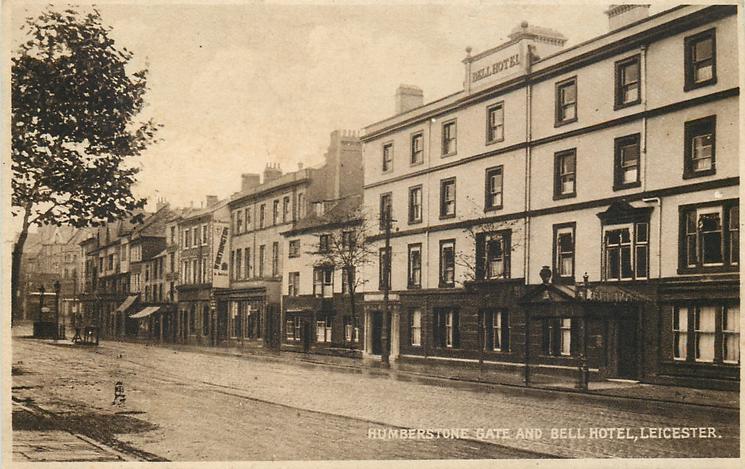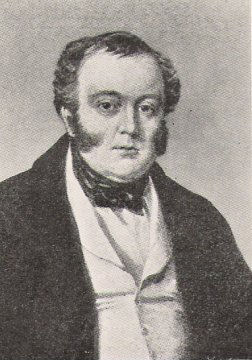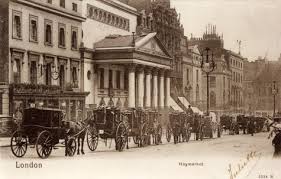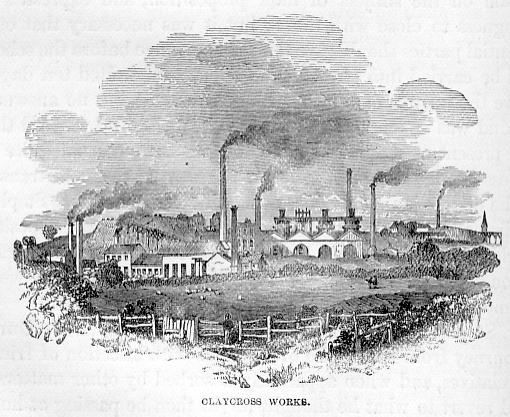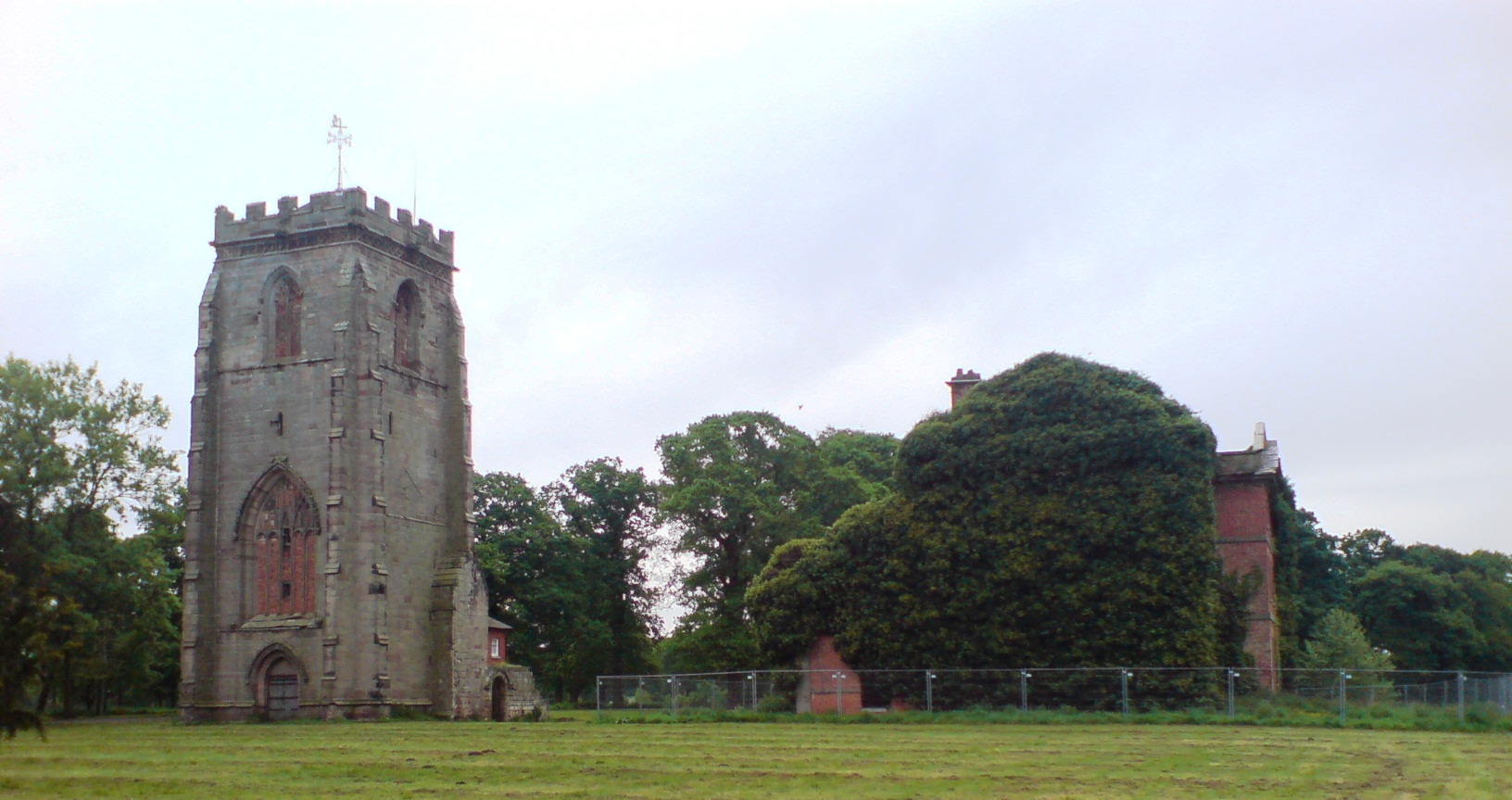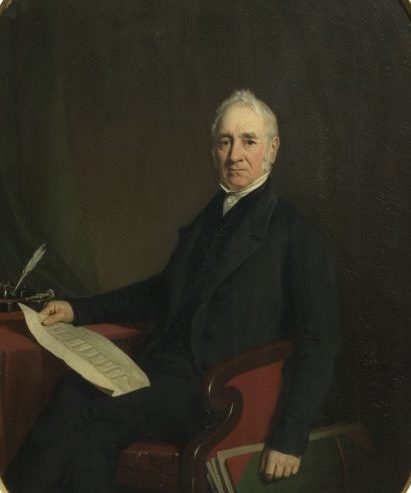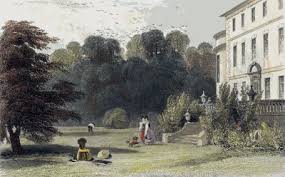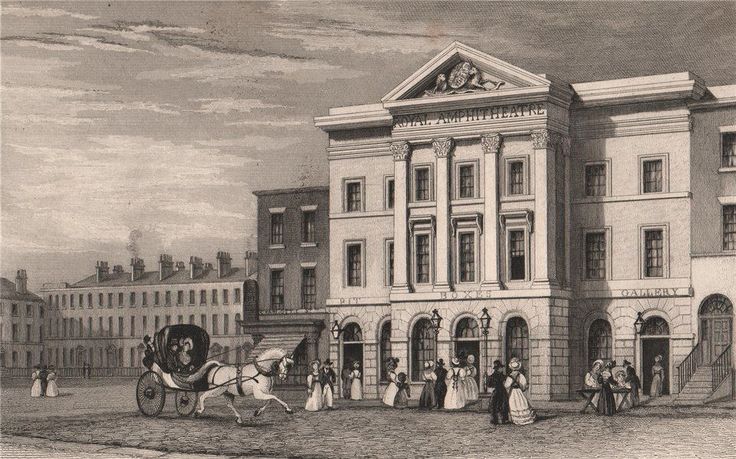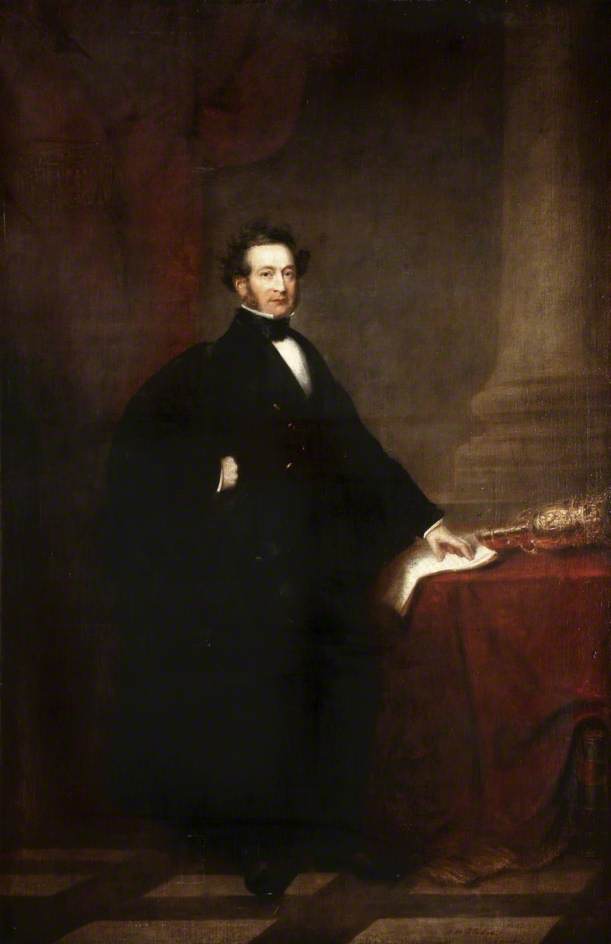CHAPTER XVII. I’m going to allow Uncle Hugh to describe this chapter. He calls it ” Joseph Hume -Sketch of his Career ” which to all intents and purposes it is. It is an odd addition to ” The Life of Sir Joshua Walmsley “, but it is quite clear that Joseph Hume was a major influence on Josh. So much so, the final home Josh built for his and Adeline’s retirement was called ‘ Hume Towers “. It is a very dense, and rather wordy chapter but for reasons known only to him, and possibly – but unlikely – an editor, this is where uncle Hugh thought it should be.
Sir Joshua’s acquaintance with Mr. Hume began on the occasion of his visit to London, in 1838 as one of the delegates of the Anti-Corn-Law League, When he took his seat in Parliament, in 1848, Mr. Hume was the veteran leader of the reformers there. Henceforth their lives were destined to flow in the same channel, a fact which entails the necessity of a chapter devoted to a sketch of Mr. Hume’s career, antecedent to the period of their common work. We shall draw, as usual, upon Sir Joshua’s notes for our brief summary of his friend’s course.
” Hume had, more than any man I ever met, “ he says, ” an invincible faith in the ultimate triumph of right, and he himself conquered in the cause of right by dint of a perseverance that I never saw surpassed.”
This key to the character of Joseph Hume we find given by the man himself in one of his letters. “ As I said before, the object being good it is sure to succeed ultimately. Perseverance must be your motto, as it has been mine and will be, to the end of the chapter. ”
Born at Montrose, in 1777, his father, the master of a coasting vessel, died when the boy was still in early youth. To the mother’s energy and sterling devotion the children owed their education and rearing. On leaving the village school, Joseph Hume was apprenticed to a surgeon-apothecary of Montrose.
When his three years of apprenticeship were accomplished, he entered the medical classes of the Edinburgh University, which he continued to attend till 1796. We next find him sailing for India in 1797, having obtained, through the influence of Mr. Scott, member for Forfar and an East India Director, an assistant-surgeonship in the marine service of the East India Company. His first absence from England lasted eighteen months, but during the short period of his stay in India he had fixed on and planned the means by which to attain a wide field of usefulness.
In November, 1799, he once more set sail for India, embarking on board the Houghton for Bengal. The Houghton was one of the ancient arks of the Company. “ I often looked,” says Sir Joshua, ” at the exquisitely careful pen-and-ink sketches of the old ship that Hume had made during his voyage out, and which he preserved as memorials of it. “ This voyage proved to have some influence on his future career. The sudden death of the purser might have led to much confusion had not the young surgeon on board volunteered to fill his place. By the punctilious discharge of his duties and the genial courtesy of his manners, Hume made friends of all on board. He spent many hours of the day, he told me, in his little cabin, studying the Oriental languages, and beguiled his leisure by learning seamanship and navigation. When the Houghton touched at Ceylon, he took soundings of the port-harbour and its surroundings, all of which he mapped down with perfect accuracy. On reaching Bengal, officers and passengers united in presenting a testimonial to Hume. Thus he landed in India with a ready-made reputation.
The Company were not long in recognising the value of a servant who understood and spoke Hindostanee, and who thus possessed a key to the character and heart of the natives, which very few Englishmen had acquired. On the eve of Lord Lake’s Mahratta War in 1803, Mr. Hume rendered a signal service to the administration which brought him into still fuller notice. Lord Mornington had prevailed upon the Peishwa of the Mahrattas, who was carrying on war with a powerful tributary chief, to sign the treaty of Bassino with the East India Company. Two powerful native chiefs, however, the Rajah of Berrar and Scindia, the fiercest and most ambitious of all the Mahratta chiefs, not only refused to concur in the treaty of Bassino, but denied the power of the Peishwa to sign one of such importance without the consent of all the Mahratta princes. Scindia’s army, officered by Frenchmen familiar with the tactics of European warfare, vastly outnumbered the regiments of English and native troops opposed to them. Before this formidable adversary it was discovered at the eleventh hour that the English stores of ammunition were valueless, the gunpowder being rendered useless by damp. At this crisis, the chemical knowledge acquired by Mr. Hume in the modest Scotch laboratory saved all that a negligent administration had imperilled. He undertook and succeeded in restoring to the gunpowder all its lost properties.
Following the army in the capacity of surgeon, his knowledge of Hindostanee led to his being appointed interpreter to the general-in-chief. Nor did his duties end here ; he filled successively the post of paymaster and postmaster of the troops, and superintended the commissariat of an army of twelve thousand men. His richest experiences of Indian character were gleaned during this period of his life, when he shared the hardships of war with the natives, who were in the proportion of ten to one English soldier. Of the bravery of Brahmins he would often speak. Reverting to the Mahratta War years after in Parliament, when misgovernment had incited the sepoys to the mutiny of Barrackpore, he bore testimony to the loyalty that then prevailed among the native troops, and to their attachment to the English service. “During the Mahratta War, “ he said, ” when a vacancy occurred, fifty candidates applied for the place.”
We now draw from Sir Joshua’s notes : “ After the declaration of peace in 1805, Hume, who had realised a fortune, resigned all his civil appointments and returned to England. Thirsting for a higher sphere of action than that of making money, he refused an offer of partnership in one of the wealthiest houses in Calcutta.
Thoroughly versed in Indian affairs, and understanding the Indian character, he hoped to effect some reforms in the Company’s administration, which should prove beneficial to England and to the vast empire dependent on her. To obtain a seat in the East India Directorship, and one in the House of Commons, were the two aims that stood out clearly before his mind’s eye as he left India and set his face homewards. His large investments in Indian stock gave him a right to attend proprietary meetings, and on these occasions he resolved to advocate the schemes of reform which he had patiently elaborated.
It was very characteristic of the thoroughness of method and proceeding with which he pursued his work through life that, in order to fit himself for Parliament, Hume, immediately after his arrival in England, visited every sea-port and every manufacturing town of importance. He would trust no hearsay evidence of the condition of the people. He would acquaint himself with the state of each social grade by personal contact with it. After this study of England, he travelled over the Continent, visited Spain, Portugal, Greece, Turkey, Egypt ; he was present at the capture of Santa Wenna by the English ; travelled over Italy and passed some time in Malta and Sicily, and wherever he went he was actuated by the same resolve to study the character of the people, and observe the effect of their government and laws in their moral and social welfare. Satisfying himself with no superficial observation, he carried his investigations into the lower strata of society.
After this preparation, in 1812, Mr. Hume entered Parliament under the Percival administration. He entered as a Tory, introduced by a Scotch solicitor for “a valuable consideration.” When the future Radical paid down his money for his introduction to the constituency of Weymouth, he stipulated — as Parliament was entering on its last session — that the sum should ensure him a second return. The terms were agreed to. But very soon the Duke of Cumberland and his co-trustees discovered what manner of man it was they had let in unwittingly amongst them : a man who visited his constituents, who advocated schools and other mischievous social innovations. The Duke and his partners, on the dissolution of Parliament, returned part of his money to Mr. Hume, and looked about for a substitute.
” Six years,” says Sir Joshua, ” were to elapse before Hume was to resume his seat on the benches of the House of Commons. These six years of exclusion from Parliament were years spent in efforts to relieve and improve the condition of the working classes.”
” From this epoch dates his acquaintance with Mr. Place of Westminster, with Mr. James Mill, and Mr. Ricardo, and with other eminent philanthropists and social economists. The establishment of schools on the Lancastrian system first claimed his attention. These schools, the work of which was conducted through the medium of the scholars themselves, were established on un-sectarian principles. Another object — only second to the cause of education — which engrossed much of his time at this period, was the establishment of savings banks to induce the poor to husband their small savings.”
Mr. Hume’s ambition to obtain a seat on the Board of East India Directors did not wane by closer contact with home interests. At every periodical meeting he steadfastly exposed the abuses of Indian administration, but he was powerless to enforce the reform of those abuses unless elected one of the governing body. He failed in his efforts to become an East Indian director, but his canvass led to his meeting Miss Burnley, daughter of one of the directors. This lady soon after became his wife.
In January, 1819, Mr. Hume was returned to Parliament as member for Aberdeen. He was afterwards successively elected for Middlesex, Kilkenny, and again, once more, for Aberdeen, in the service of which constituency he died.
England was never in a more depressed condition than in 1819. Public meetings were held all over the country, and the sufferings of the people were the theme of every speech. Foreign nations judged England to be on the eve of a revolution, sanguinary as that of the French in 1793. Lord Sidmouth, as was his wont, saw rebellion and conspiracy in every demonstration. The strange panic that had laid hold of the public mind culminated on the occasion of a Manchester meeting, where a peaceable but numerous assembly of suffering workpeople was dispersed by a charge of cavalry, wounding and killing many. [This was Peterloo, here is Shelley’s view of the massacre]
Parliament not only justified the order of the frightened magistrates of Manchester, but passed six Acts that trammelled the press and the right of public meeting. Mr. Hume resisted in every stage their passing. He denounced them as ” harsh and precipitate.” From the first, he had withstood the panic spreading in all classes. He felt, to quote his own words, ” for the ruined farmer, the distressed manufacturer, the people burthened with taxation, the landlord without rent, and the labourer without work. ” ” It was his enlarged philanthropy,” says Sir Joshua, ” at a time when the most enlightened statesmen were merely party-men, capable of regarding or representing one interest alone, that fitted Hume to become the pioneer of reformers inspired to work for the good of the many as opposed to the interest of the few. ”
From the time of his re-entering Parliament under circumstances that seemed pregnant with future ruin, he set himself to withstand every abuse of the public money. He became the self-elected guardian of the public purse; fulfilling this office by using the right vested in every member of the House of Commons, to challenge and bring to a direct vote every single item of public expenditure.
To appreciate the task Mr. Hume accomplished almost single-handed, we must realise the amount to which the nation was taxed, and the light in which Government regarded its right of draining the people’s pocket.
It has been computed and verified by statistics that, for eight years, from 1813 to 1822, about seventy- seven millions were raised by taxes out of a total income, from all sources, of one hundred and fifty-five millions; ” or that one-half of the income of the country — derived from the produce of its land, its capital, and its labour — was wrung from it, in order to support the expenses of the Government and the war. ”
The difficulties Mr. Hume encountered in the course of his efforts to reduce this enormous amount of taxation, were not a little enhanced by the state of the public accounts. Their confusion defied the industry of man to reconcile them. On one occasion (26th June 1821), he complained that he and Mr. Ricardo, on examining various official accounts, had found “ three public accounts, signed by the same person, all relating to the same period, and all differing in amount. ”
Early in the session of 1821, Mr. Hume announced his intention, ” until the House pledged itself to revise the establishment of the State, and adopt a principle of economy wherever that principle can be adopted, to bring forward motions from day to day, to compel it to that issue. “ The ministers and the large majority of the Commons sneered at this man of homely speech, who, for no party purpose, thus constituted himself censor of their proceedings. They called him a visionary, a harlequin-jumper, when he expounded his economical schemes. But their jeers fell scathless.
Mr. Hume was too simply in earnest to care much for the amusement he excited. The dry humour that occasionally flavoured his speech sometimes led him to turn his adversaries taunts upon themselves. ” If I am a harlequin-jumper, “ he said, in allusion to Lord Castlereagh’s sneer, ” ere long it will be seen what proficiency the noble lord and his friends will make in the leap in following me ; for follow me they must, in retrenchment, and in wholesale retrenchment too. ”
Faithful to his pledge, for four months of the session of 1821, day after day and night after night,Mr. Hume brought forward motions to effect reduction in the public expenditure. Several of these motions were negatived without a division. On the 21st of June, when the different estimates for the year were submitted to the House, he came forward in the full force of his censorship. For the first time, he produced those carefully-elaborated tables in which the various items of expenditure in every branch of the administration, for many years past, were carefully noted down, and the steady increase of expenditure made palpable. Sinecures were here tabulated and shown up as waste of public money.
The House listened in amazement to this evidence of the close scrutiny that had been brought to bear upon the smallest item of expenditure, and astonished heads of departments heard discussed before them the minutest arrangements of their offices, with which they were themselves totally unacquainted. Thus armed with facts and figures, Mr. Hume was invincible. Ministers and hostile majorities learnt to dread the appearance of those complicated and voluminous statements, although ” much laughter “ generally hailed the rising of the member for Aberdeen with rolls of paper in his hand. Where and how had he obtained all this knowledge, the accuracy of which was as marvellous as its extent ?
His name, in connection with the Corn Laws, is overshadowed by the great and deserved glory-shed over those of Cobden, Villiers, Bright, and Brougham. But of this reform, as of every other, he was the pioneer, advocating the repeal of the Corn Laws years before the League was formed, and sparing himself no labour to prove the truth of his affirmation, that all protective legislation is suicidal policy. “No trait, “ again says Sir Joshua, ” better illustrates the singular disinterestedness of Hume, than the quiet way in which he would abandon the leadership of a question, when others took it up whom he deemed better fitted to accomplish the remaining portion of the work. Yet, a single stroke of his, in 1840, did more to clear the way for the repeal of the Corn Laws than the League’s tracts and lecturers. He moved for a Select Committee to inquire into the several duties levied upon imports, with a view to ascertain whether these imports were levied for protection or for the purpose of the revenue alone. “ The inquiry being granted, the labours of the committee established, beyond the power of future confusion, the general difference between the natures of the two sorts of taxation hitherto confounded in the public mind- taxation raised for revenue, and taxation levied exclusively for the protection of some favoured class interest. At the same time, he advocated parliamentary reform by speeches in the House and by out-door agitation, and there were few deputations coming up to London to petition Parliament for these reforms that did not leave some grateful record of acknowledgment to the oldest champion of their cause, the leader of what had once seemed a forlorn hope against abuses which impeded the free representation of the people.
The chronicles of the time record labours at which we can merely glance : — the discovery of the Orange Lodge Conspiracy, unravelled by his diligence and zeal, whose wide-spread ramifications extended over England, Scotland, and the colonies, to whose service a hundred and forty thousand men in the army were pledged, headed by Colonel Fairman, and the object of which was to make the Duke of Cumberland king, in the place of William IV., and to the exclusion of the Princess Victoria : — his crusade against colonial abuses ; his successful onslaught against the old combination laws preventing workmen consulting together upon the rate of wages at which to fix their labour, but which left masters free to combine against them ; his repeal also of the laws prohibiting the export of machinery, and the Act preventing workmen going abroad ; his constant protest against flogging in the army, the impressment of sailors, imprisonment for debt, &c. He took up the question of lighthouses and harbours ; in the former he secured greater efficiency and effected large savings, in the latter he prevented all useless expenditure for a time. ” His public career, “ says Sir Joshua, ” may be summed up in the words which he used to characterise Mr. Ricardo’s : ‘ The general interest of the community was the single object he had in view, and through good and evil report he pursued it, in the most liberal spirit of inquiry.’ ”
He never accepted defeat. Beaten night after night, upon motion after motion, still he returned to the charge. ” Never mind, once you are sure you are in the right lobby, “ he would say to his handful of discouraged followers. At last his unswerving faith in the ultimate triumph of right won the day. The laughter that used to greet his plain speeches was heard no more, but gave place to respectful attention. He was felt to be the embodied conscience of the House. The fear of ” What will old Joe say?” nipped in the bud many an act of jobbery, that but for his presence would have been perpetrated in Parliament. His opponents were forced ultimately to give effect to the economical and financial reforms they had denounced as visionary. Sir Robert Peel himself, while still leader of the Tory party, publicly declared Mr. Hume “ one of the most useful members that had ever sat in the House of Commons. “ And Hume reaped his reward in contemplating the improved condition of the people, the simplification of accounts — above all, the higher moral tone prevalent in the administration.
The following amusing incident, often told by Sir Joshua, will illustrate Mr. Hume’s popularity amongst the working classes :
” A strike had been resolved upon by the London cabmen. The night was wet and miserable. On leaving the scene of our labours, we saw through the rain a reassuring assemblage of four-wheelers and hansoms. No sooner, however, did we hail the cabs, than with a loud halloo, the drivers impelled them in various directions. Hume and I were walking arm-in-arm. “
” ‘ We’ll give old Joe a lift,’ shouted three or four retreating cabbies, drawing up their horses.They actually fought for the privilege of giving him a lift ; and since I was walking with him, I was allowed to get in, and so shared the advantage of his popularity. ”
” He was more than commonly abstemious in his habits ; even at meals his mind was ever at work on the questions he had in hand. Possessed of unusual physical powers, the calmness of his temper was singular. His energy became trained industry, exceeding any power of endurance I have ever witnessed in other men. However late he might have left the House of Commons, he was in his study early. Frequently, when parting from him at his own door, at three or four o’clock in the morning, he would call out to me : ” Remember to be with me at eleven, for we have a committee on at twelve.” By that time he would have already attended to his voluminous correspondence, received visitors coming with varied subjects of information, attended to the innumerable applications for information, which he was always ready to give. In committee until four, the business of the House and his papers required his attention until seven ; when he would take a very frugal meal, and returning to his duties, would remain until the breaking up of the House. With all this unceasing labour, I never heard him complain of weariness, or speak an unkind word of anyone, save perhaps on public grounds. He was as hopeful as a child, and sometimes more confiding than reason seemed to justify. “
We give the following pleasant little note from Mr. Cobden to Sir Joshua, enclosing him a letter of Mr. Hume’s, for one line of it gives us his estimate of the man :
” Hayling Island, Hants, 16th September, 1848.
“My dear Walmsley,
” I have to-day received the enclosed from Hume, for you. I suppose he is impatient to get to work again. What a granite body and soul the old boy must have. We are enjoying fine weather here. It is out of the world, five miles away from a shop, and not a politician to be found in a long day’s ramble.
” Believe me, faithfully yours,
“Richard Cobden.”
One more quotation from Sir Joshua’s note-book, and we close this sketch of the friend he valued above all others. It bears upon Mr. Hume’s friendship with the Duke of Kent, which proved to have some influence on the history of our present Queen.
” It is so much a matter of history, that it is not indelicate to allude to the fact of the Duke’s pecuniary difficulties. Hume became the Duke’s trustee, and for many years managed his estate, and cleared it of every claim. The Duke of Kent lived abroad, and had it not been that Mr. Hume guaranteed five thousand pounds, the Duchess could not have come over to England, and the Queen’s birth would have taken place on foreign soil. After the death of the Duke, Mr. Hume became one of the confidential advisers of the Duchess of Kent, taking an active part in the arrangements for the education of the young Princess. I have often heard him speak of the great maternal solicitude of the Duchess. She was indefatigable in her efforts to train aright her daughter’s mind She never left her, kept a minute of every day’s employment, striving incessantly to guide her infant mind far from guile or pride. “
” Mr. Hume also often spoke to me of the fears she entertained lest the machinations of George IV. should be successful in obtaining the control of her child’s education. At these discussions the youthful Princess was sometimes present, listening attentively to the conversations of her mother and Mr. Hume. George IV. at last was deterred from his object, by Mr. Hume declaring his determination to bring the whole subject before the House of Commons. “
It seems to us that we cannot do better than give here a letter of Mr. Hume’s to Sir Joshua, which contains a retrospective view of his long, laborious life, and is a confession of faith. It somewhat forestalls our narrative; but it aptly closes this slight summary of his work. The letter was addressed to Sir Joshua when the latter, ill in health and harassed by the heavy responsibilities entailed by his presidency of the National Freehold Society, had written to Mr. Hume in weariness of spirit, that he wished to retire from the post.
Enclosed in his letter we find a prescription, and some direction as to diet and exercise, signed ” Joseph Hume, M.D., without a fee. “ This explains the allusion contained in the first paragraph. It is dated from his seat in Norfolk, December 27th, 1851.
” My dear Sir Joshua,
” I thank you for your letter, as it will enable me to give you some simple directions for your own health, without which your labours will be a trouble instead of a pleasure. I enclose a few plain and simple suggestions, which, if attended to, may keep you in working trim, and thus enable you to be useful in your day. “
” You say, why should I work and toil to effect reform at so great a sacrifice of health, time, and money ? You are a beginner, I am an old stager in reform. You confine, perhaps properly, your energies to one subject, ‘Reform of Parliament,’ whilst I have gone through every department of Church and State, civil and military, which has engrossed my time, attention, and finances, for the last forty consecutive years — often against enormous odds and under very discouraging circumstances ; always against the mass of the public servants of the ministry for the time being. But I had laid down to myself this rule, that whilst I was independent in circumstances and fortunate in my progress to a seat in Parliament, I should do my best to improve the condition of my less fortunate fellow- countrymen by reforming and improving the institutions of the country in which we lived. “
” Although a ‘Radical’— by-the-by, a phrase first used by myself — and at one time a very ill-received character by the higher classes, I have never been anxious to destroy our institutions, but zealous to improve them. I have considered the theory of a limited monarchy, with representative institutions and freedom of the press, as the best form of government that I could suggest ; and all my efforts have been directed only to amend where defective, or to change where circumstances had altered the operation and effects of some of the branches or departments of our public institutions ; but always keeping in view that a government was a convention in society, by which the laws and regulations of the State should secure the greatest amount of happiness to the greatest number of the people. In fact, I consider the government made for the benefit of the people at large, and not for the advantage of the few, and on that I have ever acted. I found class interests and the benefits of our institutions to exist to a great extent to the injury of the many, and the cause (by misrule) of misery to the mass of the people ; and my whole efforts, during a long political struggle under most unfavourable circumstances (at times), have been devoted to effect such reforms as should secure the advantages which the struggles of our ancestors had endeavoured by liberal institutions to give to the nation. “
” I wanted nothing for myself, and therefore could always take that course which, in my judgment, appeared best calculated to secure the happiness of the mass of the people, for whom few seemed to care; and with these objects in view, my labours have been, though very severe and sometimes to the risk of my health, a source of satisfaction — often of real pleasure — by the successes that have at times attended, though sometimes very tardily, those labours. I hope I shall be able to conclude my political career (now approaching to its termination), without sacrificing any of the great principles of civil and religious liberty that I have uniformly advanced and advocated, and that I shall not have to regret (as many of my fellow-labourers must have done) the relinquishment of public advocacy for private advantage. I hope when I lay my head on my pillow, never again to raise it, that I may be able conscientiously to be satisfied with my public and private acts, and further, to think that I have not lived in vain, but have acted for the benefit of my fellow-creatures everywhere. Follow my advice and put the same questions to yourself, so that they may regulate your conduct. Wishing you success, “
” I remain, yours sincerely, “
” Joseph Hume, ”
